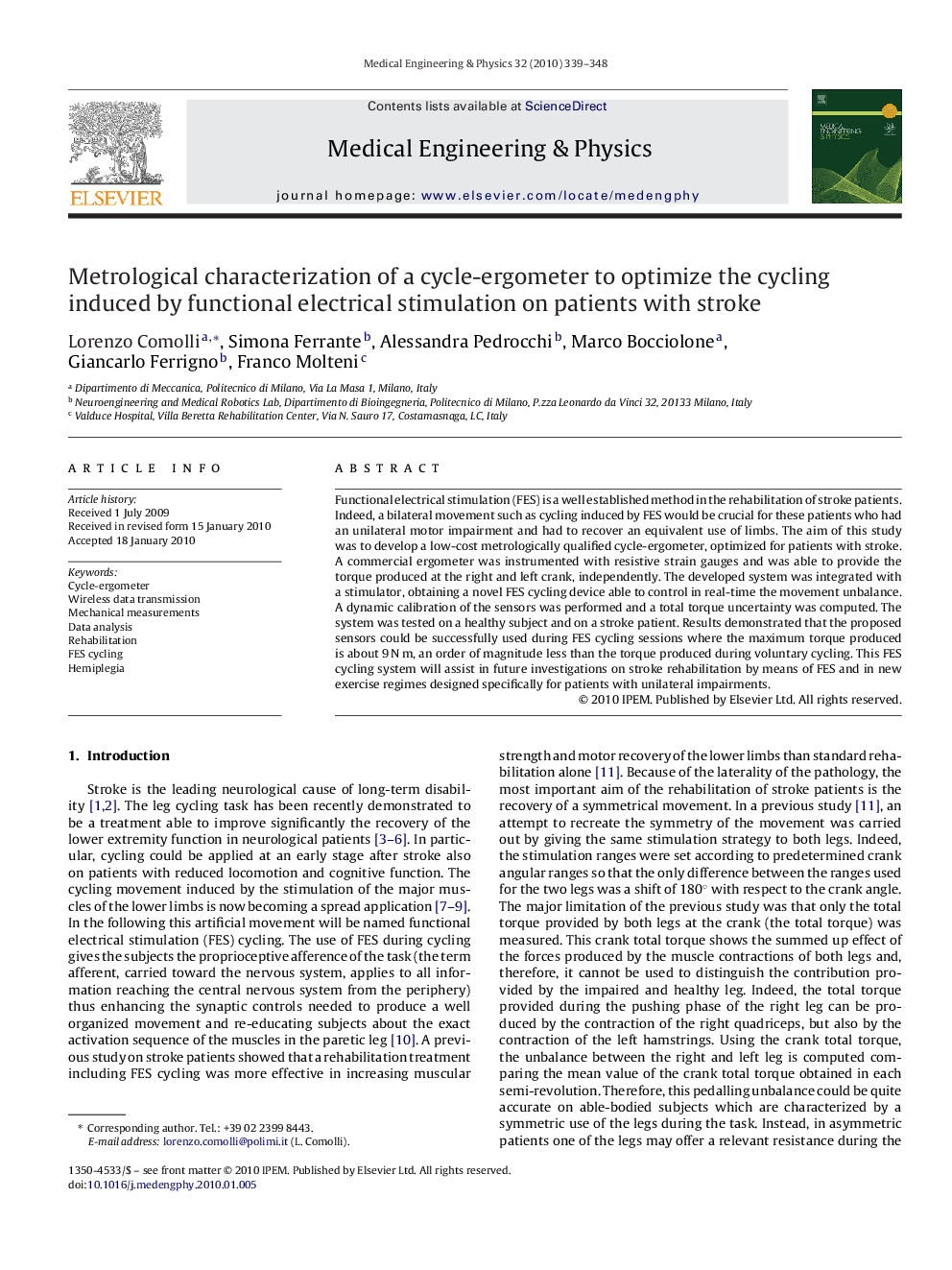| Article ID | Journal | Published Year | Pages | File Type |
|---|---|---|---|---|
| 876381 | Medical Engineering & Physics | 2010 | 10 Pages |
Functional electrical stimulation (FES) is a well established method in the rehabilitation of stroke patients. Indeed, a bilateral movement such as cycling induced by FES would be crucial for these patients who had an unilateral motor impairment and had to recover an equivalent use of limbs. The aim of this study was to develop a low-cost metrologically qualified cycle-ergometer, optimized for patients with stroke. A commercial ergometer was instrumented with resistive strain gauges and was able to provide the torque produced at the right and left crank, independently. The developed system was integrated with a stimulator, obtaining a novel FES cycling device able to control in real-time the movement unbalance. A dynamic calibration of the sensors was performed and a total torque uncertainty was computed. The system was tested on a healthy subject and on a stroke patient. Results demonstrated that the proposed sensors could be successfully used during FES cycling sessions where the maximum torque produced is about 9 N m, an order of magnitude less than the torque produced during voluntary cycling. This FES cycling system will assist in future investigations on stroke rehabilitation by means of FES and in new exercise regimes designed specifically for patients with unilateral impairments.
